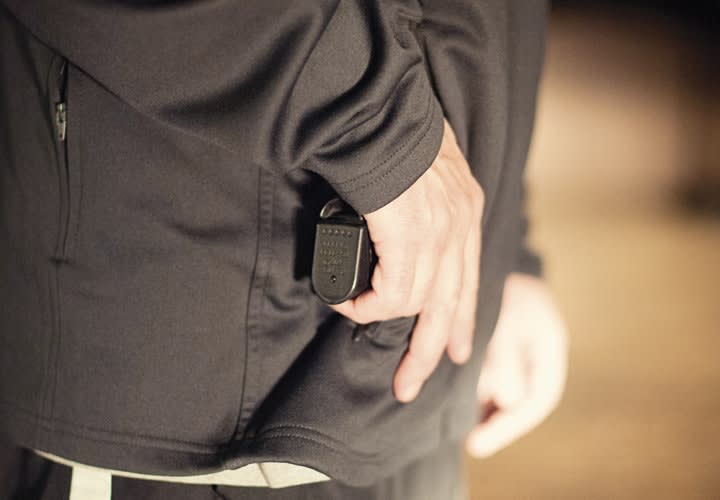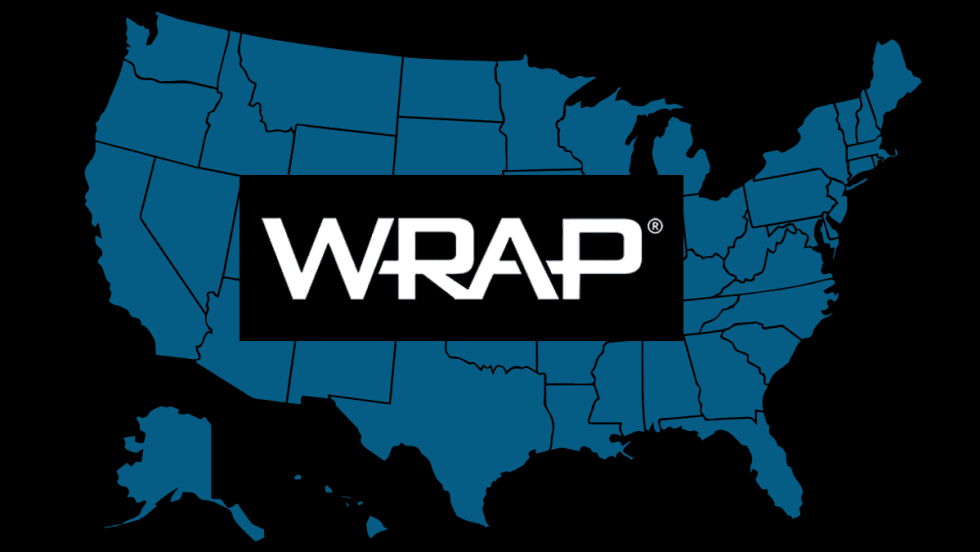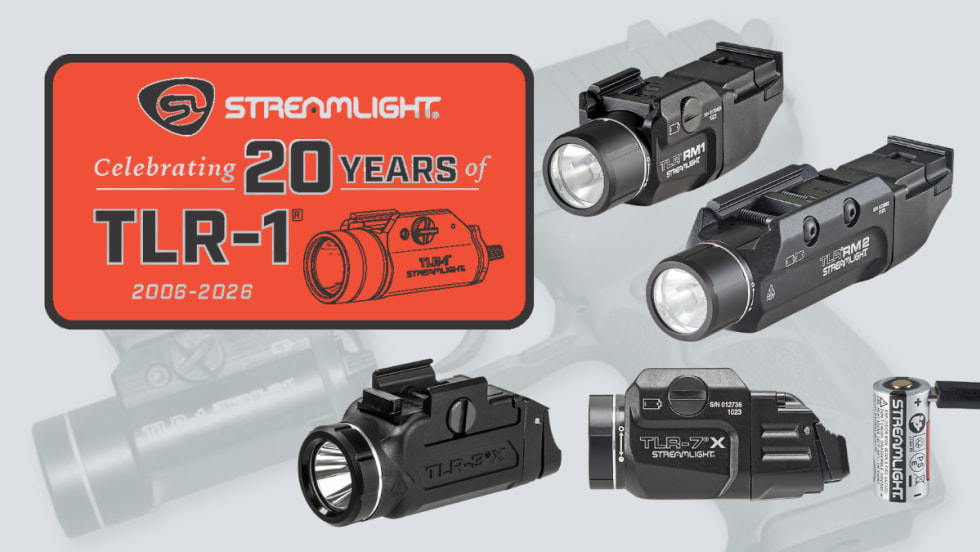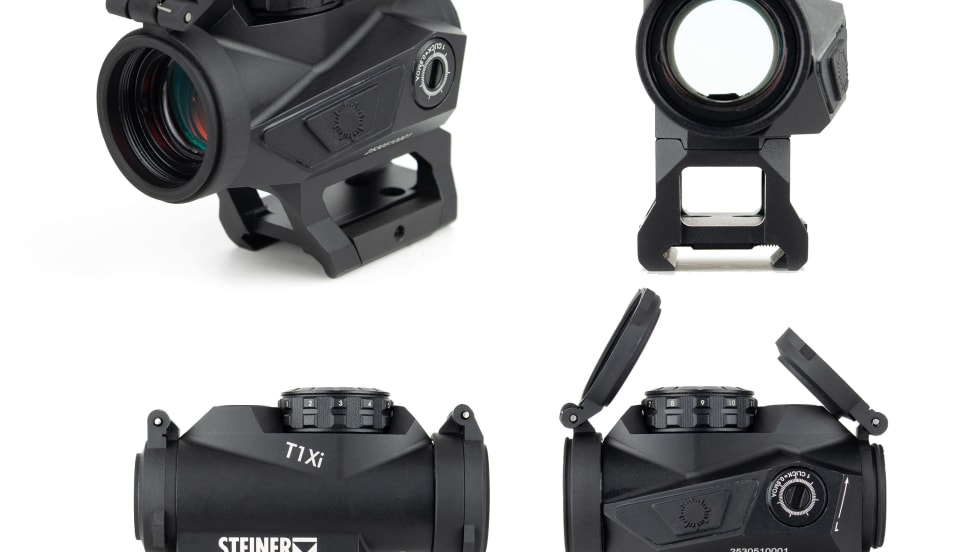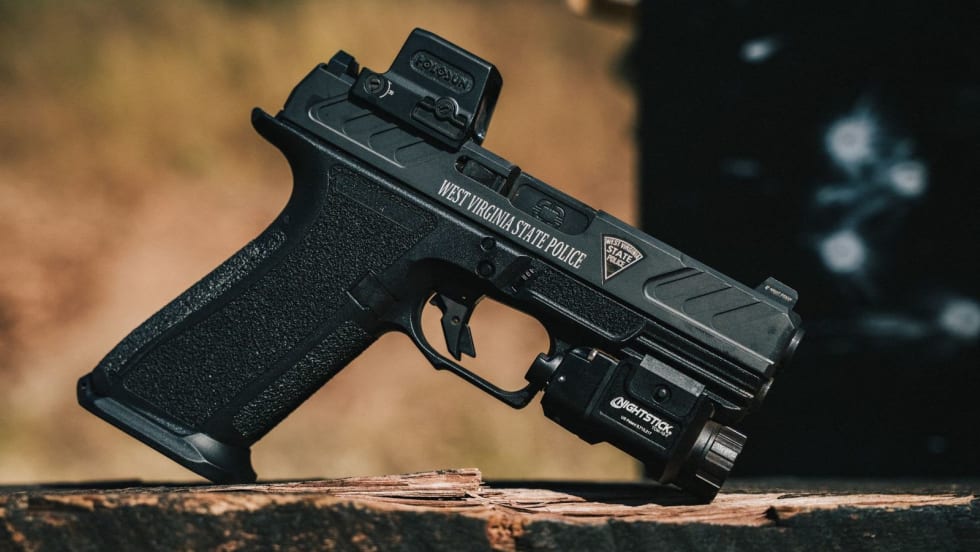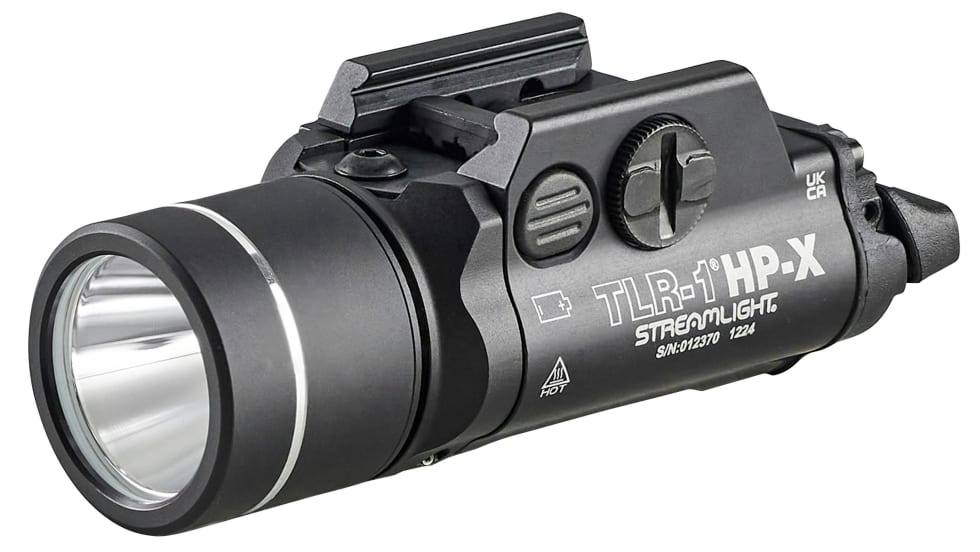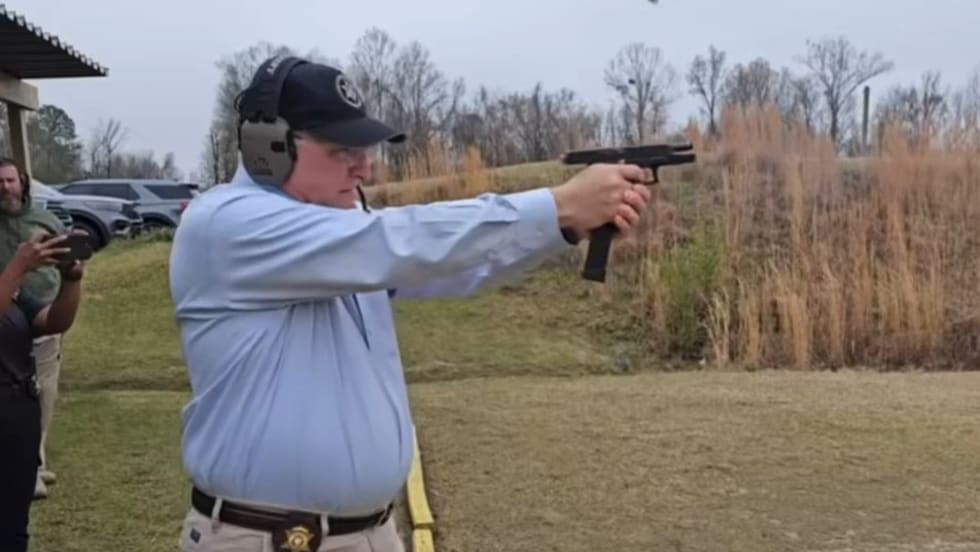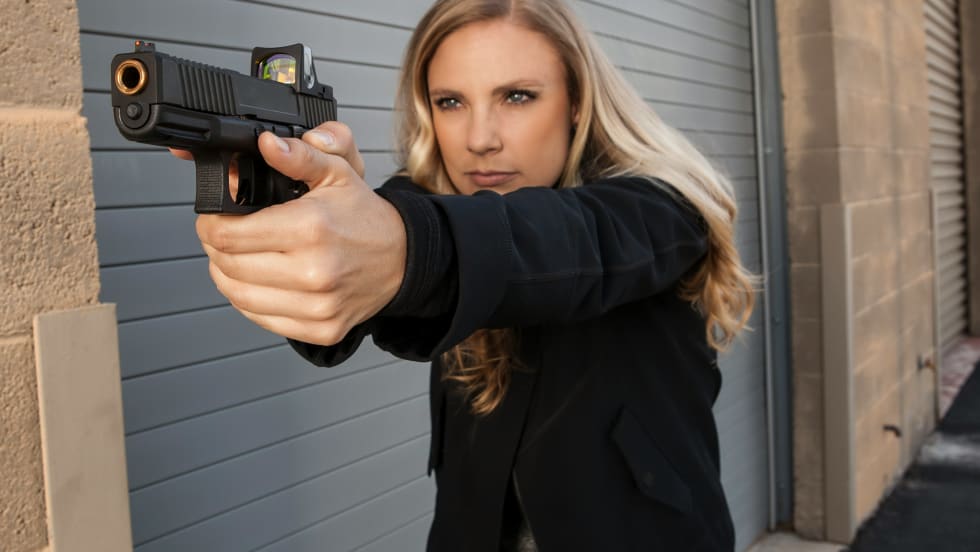In law enforcement, a lot of the recent scuttlebutt focuses on off-duty and retired officer carry laws, covering what you can and cannot do under the Law Enforcement Officers Safety Act (LEOSA).
Having served in the Marine Corps, I am familiar with the perils of scuttlebutt, an old Navy term for water cooler talk that now means rumors and gossip. In law enforcement, a lot of the recent scuttlebutt focuses on off-duty and retired officer carry laws, covering what you can and cannot do under the Law Enforcement Officers Safety Act (LEOSA).
Signed into law on July 22, 2004, by President George W. Bush and codified as 18 U.S.C. §§ 926B & C, LEOSA was intended to afford qualified active (QLEO) and qualified retired law enforcement officers (QRLEO) the privilege of carrying a concealed firearm in all 50 states, the District of Columbia, the Commonwealth of Puerto Rico, and all other U.S. possessions (except the Canal Zone) notwithstanding any other provision of the law of any state or political subdivision thereof.
LEOSA sounds pretty cut and dried. But unfortunately, it isn't.
Vague language, confusing amendments, and a relative shortage of interpretive case law have allowed scuttlebutt and confusion to take over common sense application of its principles. And clarifying this law and what it means for law enforcement officers and retired law enforcement officers is a large part of my job as attorney for the National Rifle Association.
Qualification Requirements
Initially intended to apply only to people who are QLEO and QRLEO, LEOSA was amended in both 2010 and 2013, opening the door to individuals separated after an aggregate of 10 years or more service as an active, reserve, auxiliary, or volunteer law enforcement officer, as well as military and DOD police and law enforcement officers. In addition, LEOSA now applies for active law enforcement officers of the Amtrak Police Department, Federal Reserve, and executive branch of the Federal Government, even if they lack statutory powers of arrest. However, because of a failure to remain consistent with the language used in both parts of the statute, those without arrest authority are unable to qualify upon separation.
While many agencies argue that only full-time officers qualify for the privileges afforded by LEOSA, the plain language of the statute and case law interpreting it prove otherwise.
In The People of the State of New York v. Arthur Rodriguez (Indictment # 2917/06 (NY. Sup. Ct. 2006), the New York Supreme Court found that Rodriguez, a Pennsylvania Constable (despite constables not being paid a salary by any municipal subdivision and working more like independent contractors paid on a per job basis), was in fact employed by the court and qualified for protection under LEOSA.
The U.S. Attorney for the District of Columbia took a similar position in an amicus brief filed in the Superior Court of D.C. case of District of Columbia v. Barbusin (Criminal No. 2012-CDC-00913). Barbusin, a special police officer of the District of Columbia Protective Services Police Department, asserted LEOSA protection following charges stemming from the alleged illegal possession of an assault weapon in the District. While the case was ultimately dismissed with prejudice due to Brady violations, the language of the government's amicus brief is instructive on the issue. In the brief, the government notes that LEOSA's definition of a "qualified law enforcement officer" is to be read broadly and that a defendant producing evidence supporting the performance of law enforcement activities such as those outlined in LEOSA satisfies "LEOSA's broad definition of a 'qualified law enforcement officer.'"
Another argument frequently raised by agencies hostile to LEOSA is that an individual must possess both law enforcement authority and agency authorization to carry a firearm while off duty in order to qualify for LEOSA. In one of the few criminal cases to examine this issue, People v. Booth, 862 N.Y.S.2d 767, (NY. Co. Ct. 2008), the defendant, a Coast Guard reservist, was charged with the crime of Criminal Possession of a Weapon in the Second Degree after a loaded handgun was found in a compartment underneath the seat of the vehicle in which he was traveling. Even though Booth was off duty at the time of his arrest and did not possess agency authority to carry while off duty, the Court found that Booth's duties in the Coast Guard, which were defined "as the prevention, detection, [and] investigation of violations of the law" as well as his "authority and duty to arrest violators" and qualification to carry a firearm, despite its time and place restrictions, qualified him for LEOSA and exempted him from prosecution under New York State Law. Id. at 770.
Reliance on scuttlebutt surrounding qualification requirements and failing to recognize LEOSA's preemptive authority over state law can be costly. In People of the State of California v. Jose Diaz, Case No. 7GF00494 (Cal. Sup. Ct. 2007), a Coast Guard boarding officer was arrested under Cal. Pen. Code § 12031(A)(1) for carrying a loaded firearm in his vehicle while in a public place. At the time of his arrest, Diaz was traveling with a cased firearm and loaded magazine in the back seat of his automobile. The charge was dismissed on oral motion by the prosecutor after it became evident to the City that LEOSA preempted Diaz's prosecution. Diaz sued for a violation of his civil rights, Diaz v. City of San Fernando, et al., Case No. PC044139 (Cal. Sup. Ct. 2011). The civil suit settled outside of court, and the Settlement and Release Agreement entered into between Diaz and the City resulted in a $43,500 payment to Diaz and a redraft of the City's police training standards on LEOSA.
ID Issues
As members of the Coast Guard, both Booth and Diaz qualified for LEOSA prior to a recent amendment to the statute. With the new language, however, they likely do not.
On Jan. 2, 2013, LEOSA was amended to specifically allow for active and "retired" (as defined by LEOSA) military and DOD police and law enforcement officers with UCMJ (Uniform Code of Military Justice) apprehension authority to qualify for the statute; however, also hidden within the amendment was language mandating that all QLEOs now carry a photographic ID that "identifies the employee as a police or law enforcement officer of the agency," and that QRLEOs carry a photographic ID "that identifies the person as having been employed as a police or law enforcement officer."
The DOD has not amended its own policy on LEOSA, DODI 5525.12, resulting in an inability for many that are now able to qualify, and those that previously did, to obtain the requisite photographic identification card. A standard CAC or blue retiree card will not work for LEOSA purposes, as the photographic ID needed to identify the individual as either being actively or having once been employed as a police or law enforcement officer of the agency.
While enacted in an effort to limit the ability to qualify for LEOSA to only those military and DOD personnel that served in a police or law enforcement billet, this change will likely cause substantial difficulties for many non-DOD law enforcement officers that already have significant problems obtaining the required identification cards from their agencies, and especially for those who qualify but do not hold, or never held, the title of police or law enforcement officer. This problem is only compounded by the fact that LEOSA does not bestow either an explicit right to obtain the required photographic ID or a federal remedy for an agency's failure to issue one.
This issue has been challenged multiple times in state court and the denying agency has always prevailed; first, in the 2007 case of McKinley v. City of Topeka, Case No. 06-C-376, and then again in the 2010 cases of Moore, et al. V. Trent, et al, 2010 U.S. Dist. LEXIS 133038 (E.D. Illinois 2010) and Johnson v. NY State Dept. of Corrections, 709 F.Supp.2d 178 (N.D.N.Y. 2010). In all of these cases it was found that as long as the agency's denial is not arbitrary or capricious there is no remedy available to the individual who is denied issuance of an identification card.
Despite the lack of ability for many to demand a qualifying ID card, QRLEOs of the Bureau of Alcohol, Tobacco, Firearms, and Explosives; the Drug Enforcement Administration; the Federal Bureau of Investigation; the Federal Bureau of Prisons; the Office of Inspector General (insofar as the retiree exercised statutory law enforcement authority at the time of his retirement); and the U.S. Marshals Service are in luck. In a January 31, 2005 memo to the agencies, the Attorney General of the United States provided guidance on the application of LEOSA and directed that IDs "shall be issued" to QRLEOs.
Gun-Free Zones
Another area rife with confusion is where an individual may carry under the protections afforded by LEOSA. Despite its intent, LEOSA does not preempt all state laws.
Explicitly written into the statute are several areas considered off limits to those carrying under LEOSA such as restrictions imposed by private persons or entities on their property and those imposed on state or local government property, installations, buildings, and parks. What is not included in the statute is where problems may arise.
Per 18 U.S.C. § 930(a) an individual is prohibited from possessing or attempting to possess a firearm in a federal facility, which is broadly defined in the statute to include "a building or part thereof owned or leased by the federal government, where federal employees are regularly present for the purpose of performing their official duties."
While the ban on possession in federal facilities appears to be well understood and recognized by those carrying under LEOSA, the exemptions which allow individuals with a state-issued permit to carry concealed firearms in federal park lands and through GFSZs (gun-free school zones) are not.
The exemptions for these areas (36 C.F.R. §§ 2.4(e) & (h), 18 U.S.C. § 922(q)) allow for individuals carrying concealed in accordance with the laws of the state in which the federal park or GFSZ is located to carry concealed in them; however, an individual carrying under LEOSA is carrying under federal law and not in accordance with the laws of the state they are in. What this means is that you are not exempted from carrying a concealed firearm in these areas UNLESS you are on official duty or possess a valid and qualifying state-issued concealed carry permit.
Don't think this applies to you? Think again. Go check out your local planning department's Website or take a quick look at the map below taken from the San Francisco Planning Department's Website (http://www.sf-planning.org/index.aspx?page=2337). Most cities are so laden with GFSZs that it is virtually impossible to travel anywhere without inadvertently passing through one of them.
While it was once reasonable to assume that professional courtesy would eliminate the probability of prosecution based on a violation in one of these areas, that all changed last year when a QRLEO was charged while walking through an alleged GFSZ in New York City. While the case is still in its infancy, the fact that charges were brought highlights the importance of understanding your surroundings despite LEOSA's other protections, especially in notoriously unfriendly gun rights environments like New York.
What You Can Carry
LEOSA specifically prohibits certain firearms such as machineguns and destructive devices, as well as silencers, but the law is silent on other types of firearms. Many assume that the law only applies to handguns; however, most firearms capable of being concealed are covered. An examination of the legislative history, as well as two cases addressing the issue, clearly demonstrates that LEOSA applies to all firearms except those specifically exempted.
During initial debate in the House on this issue, Rep. Bobby Scott (D-VA) proposed an amendment to add "semi-automatic assault weapons" to the firearms excluded from exemption under the statute, arguing:
"Since we have decided that people, without authority to carry firearms, even in their own agency, who may have no training, can carry concealed weapons in violation of the local ordinances and local agency regulations, we just want to make sure that this bill does not allow them to carry military assault weapons concealed in violation of local laws and regulations."
Scott's amendment was rejected.
Furthermore, in his dissenting view of the equivalent Senate bill, Sen. Ted Kennedy (D-MA) made clear that this Act is not limited only to the possession of handguns, noting:
"It is equally clear, however, that off-duty and retired officers do not need to carry concealed shotguns, sniper rifles, or other weapons that their own police departments have not authorized them to carry. The Committee's failure to limit the bill to authorized police weapons—or even to handguns, as New Jersey law provides—will further undermine the safety of American communities."
In People v. Peterson out of the Twelfth Judicial Circuit, Will County, Ill., the defendant was indicted for the class 3 felony of Unlawful Use of a Weapon for knowingly possessing a modified rifle with a barrel less than 16 inches in length. The court dismissed the case, finding that LEOSA applied to the defendant, that "LEOSA does not provide definitions as to the issue of carry or concealment…", and that the state not only failed to provide evidence sufficient to prove that firearms rendered illegal by state law are protected by LEOSA, but also that "at trial it is the State's burden to prove each element of the offense charged," and that "[b]y these findings, it would be impossible for the State to do so." Decision and Order, page 3.
The issue was also litigated in the Barbusin case mentioned above. Again, while the case was never decided, the AG's memo again proves instructive. Highlighting the fact that "Congress made clear that the term 'firearm' 'has the same meaning' as in 18 U.S.C. § 921(a)(3)…" which "defines a 'firearm' as 'any weapon…which will…expel a projectile by the action of an explosive,'" it was determined that Barbusin's AR-15 satisfied "this broad definition."
Qualifying Yearly
This interpretation of the law makes a fallacy of the argument many departments and qualified instructors make that QRLEOs must qualify yearly on every firearm they intend to carry under the privilege of LEOSA, and not simply on each type, including handguns, long guns, and shotguns.
As most retirees unable to qualify with the department or agency they separated from are well aware, a cottage industry of instructors claiming to posses the ability to perform LEOSA qualifications has emerged. LEOSA is clear that QRLEOs must meet "the standards for qualification in firearms training for active law enforcement officers as determined by the former agency of the individual, the State in which the individual resides or, if the State has not established such standards, either a law enforcement agency within the State in which the individual resides or the standards used by a certified firearms instructor that is qualified to conduct a firearms qualification test for active duty officers within that State."
While some states do afford NRA Law Enforcement Certified Instructors with the qualification to perform this test to retired officers, most states do not. Accordingly, many individuals performing LEOSA qualifications do not possess the authority to do so. In addition, it is common for these individuals to inform QRLEOs that they must qualify on every firearm they intend to carry, generating additional fees under a false reading of the law.
As the legislative history, statute, and case law make clear, if you qualify on one type of firearm, you can carry any firearm of that type under LEOSA. Accordingly, qualifying with a handgun enables you to carry any handgun under LEOSA, be it pistol or revolver. No separate qualification is necessary unless the state or agency has a different qualification standard for it.
James M. Baranowski is Associate Litigation Counsel at the NRA's Institute for Legislative Action and a member of the International Law Enforcement Educators and Trainers Association (ILEETA). He is a decorated combat veteran, having served in the United States Marine Corps both as an officer with 1st Reconnaissance Battalion and as a judge advocate.


